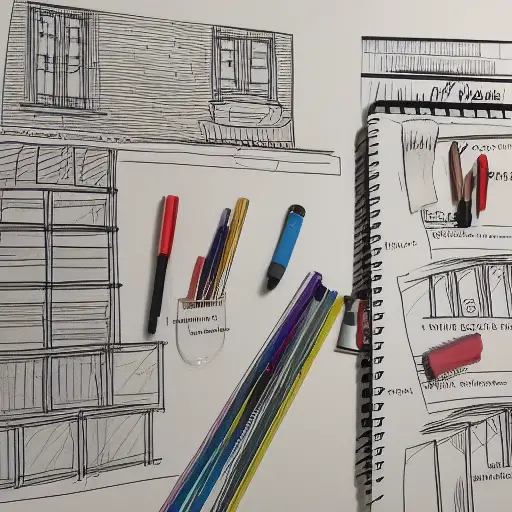A professional organizing expert will help you get order in your life, whether you’re at home or away. They act as a coach, decision-maker, and problem-solver. Often, they will help you sort through your files and establish a new system. If you’re having trouble keeping up with your piles of paperwork, consider hiring an organizing expert to help you out.
Professional organizers help clients create order with or without them present
When hiring a professional organizer, you should make sure they have experience and the necessary skills to work with clients who have emotional issues. While some organizers are solo workers, most work with their clients. They can also provide a to-do list so that you can do your part of the organizing process on your own.
Whether you need a closet or garage reorganized, a professional organizer can help. These professionals can also help seniors, people with disabilities, and hoarders organize their homes. You can find an organizer in your area by searching the professional organizing association’s website. Their websites will contain client testimonials and information on their fees. You can also ask friends and family members for recommendations. Referrals are often the best resource for finding an organizer who can help you with your particular situation.
A professional organizer will be able to help their clients rationally use their living space. They will help them organize and reorganize their possessions so that they feel comfortable with their current living space. A professional organizer is trained to deal with the relationship between objects and space using scientific methods. They are trained to think scientifically and apply this method to help their clients achieve order with or without them present.
Professional organizers are certified, which means they have undergone rigorous training and client interaction. They must have at least 150 hours of documented experience. They also must have taken at least three courses on organizing and productivity.
They act as a coach
You can hire an organizing expert to help you get organized. They are able to help you break down an overwhelming project into manageable chunks, which helps you stay focused and reduce the feeling of overwhelm. When you hire an organizer, you’ll have someone to bounce ideas off of, as well as someone to help you set priorities.
Organizing and coaching work well together. A qualified organizer coach will be trained according to the International Coach Federation’s standards. This ensures that the coaching work of the organizing expert matches the client’s goals. If you choose to hire an organizer, be sure to hire someone with experience and a high standard of education in organizing and coaching. This way, you won’t have to sift through years of trial-and-error learning to be a professional organizer.
An organizing expert acts as a coach and mentors those who are looking for help. If you’re looking for a coach to help you manage your organizing, make sure to find someone who has experience working with people with ADD. Cam Gott is a co-founder of the Coach Approach for Organizers program and the senior trainer. He is also a mentor to ADD coaches in training and writes about the challenges and benefits of ADD work on his blog. Cam is a former educator who began taking coaching training in 1998. He was trained at the Coaches Training Institute.
They are decision facilitators
When working with teams and large groups, decision facilitators are essential to the success of a meeting. Their job is to ensure that everyone has a common goal and to build momentum when the process gets stuck. This involves creating a clear vision of the end result and providing a variety of tools to help the team accomplish the goal.
Facilitators help groups reach decision-making consensus through different methods, including polling and dot voting. These tools allow people to prioritize ideas and to express their opinions in a more balanced way. Some of these tools can be used virtually, including digital whiteboards. As with any tool, the most effective technique will depend on the nature of the decision and whether or not the stakeholders need to make emotional or mental commitments.
A facilitator can bring a more inclusive perspective to the group by giving participants a broader range of information. This broad perspective can result in better proposals and decisions. Participants may be biased based on their limited experience or perceptions, but facilitators can provide statistical data that illuminates larger trends over time. Participants may also have implicit biases and personal biases that may limit their ideas. For example, participants in a community meeting on student behavior may be influenced by previous negative experiences with disruptive youth and may be unable to consider alternative approaches to student discipline.
An experienced facilitator draws on a variety of skills to facilitate group dialogues. They use their unique style and approach to guide groups towards a common purpose. They also provide written summaries of the discussions to help groups come to a decision. They are able to ensure that the process is inclusive and democratic.
They are problem solvers
The organizing experts know how to solve problems in their clients’ environments. They start by observing the environment and identifying what needs to change. They then formulate approaches to improve the situation. Lastly, they implement the changes and monitor their impact. This process helps people understand the relationships between the different things in their environment and improve them.
The process of problem solving includes considering the problem holistically and classifying it according to its underlying principles. The solution is only possible if all parties involved contribute to the problem solving process. Experts usually engage in a planning process before moving forward with a solution. In contrast, novice problem solvers tend to jump right into a solution.
Finding the problem is the most challenging stage of the process. Individuals’ ideas of what constitutes a problem often make it difficult to identify it. However, the symptoms of the problem may give important hints. Sometimes these critical clues are intuitive or subtle, and can only emerge after a long process. However, this process does not always end with a solution.
An important skill in problem solving is building effective teams. Good teams work efficiently and have a high degree of ownership in solving a particular problem. Problem solving is often complex, but a well-designed team helps individuals develop effective solutions. It also helps people build relationships with one another. They learn from each other and get to know each other’s strengths and weaknesses.
They have empathy
Empathy is a powerful tool for facilitating teamwork and collaboration. People with empathy are seen as trustworthy and compassionate. Empathy can inspire creative thinking and increase team morale. Empathy can be demonstrated through small gestures like remembering names, smiling, paying attention in meetings, and offering constructive feedback. When demonstrated, empathy can create a friendly, trusting environment in which people feel comfortable sharing their ideas and experiences. Empathy can also be a powerful tool for creating positive change in clients’ lives.
Empathy is a valuable skill for effective teamwork and leadership. A skilled organizer will be able to put the needs of others ahead of their own. Empathy enables you to recognize situations from other people’s perspectives and can help you make better decisions. Empathy can be developed through practice and curiosity. The curiosity to understand different perspectives will lead you to be compassionate and understanding.
Empathy is a crucial part of emotional intelligence. Empathy enables you to recognize the feelings of others and use that information to improve relationships. Empathy is essential in leadership because it helps leaders to build stronger relationships with people. Empathetic leaders have a greater understanding of staff, customers, and external stakeholders.
Having empathy in your workplace is essential if you want to maintain and improve team morale. When you listen to your employees, you can better predict potential problems and innovate in a way that helps employees and clients feel comfortable. In addition, employees who feel compassion from their leaders report greater levels of engagement. Empathy helps leaders prioritize technical, operational, and strategic excellence, but also enables them to put employees first.
Empathy is a vital skill in today’s world. It contributes to positive relationships and organizational cultures, and ultimately, results. While this skill isn’t new, its importance is growing.






